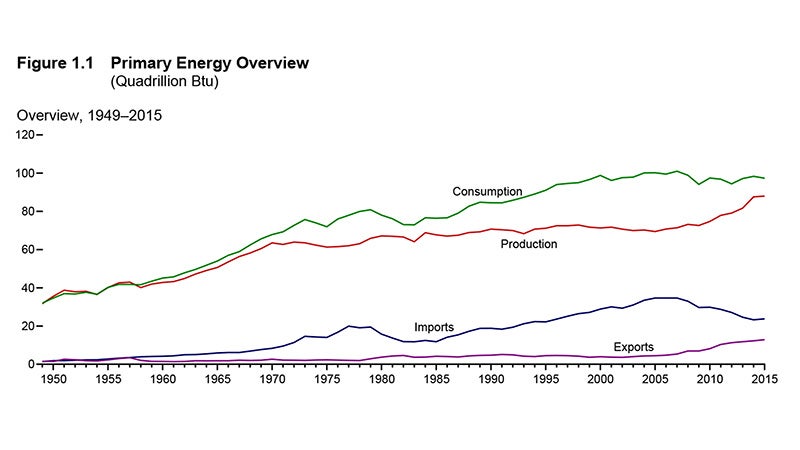Build the pipeline
Published 8:39 pm Saturday, February 18, 2017
America has an energy problem.
Even in the midst of the nation’s push for alternative energy sources, like solar and wind power. Even amid the growth in popularity of electric cars and solar-powered homes. Even as protesters tweet their disdain for pipelines and such from cellphones that derive their power from coal-fired power plants, the nation does not produce enough energy to meet its consumption demands.
A quick look at the chart above, from the U.S. Energy Information Administration, makes the problem plain. We Americans require more power than we produce, and one must look back all the way to the 1950s to find a time when it wasn’t so.
The figures for total energy production include all sources of energy used in the U.S. — both domestically produced and imported, both fossil fuels and alternative. And even the nation’s move toward building vast solar farms — like the one that recently went online in Isle of Wight — has not solved the problem. Dominion Virginia Power has put three such solar farms into production in recent years, and together they generate 56 megawatts of electricity, enough to power 14,000 homes during peak usage times.
But it’s still not enough, and it’s not likely to be enough in the foreseeable future. Solar and wind power may well be the wave of the future for energy production, but they will not solve the short-term or mid-term demand problems that must be addressed in order to make our nation independent of foreign oil, to meet the needs of continuing economic development and to power all the new electronic gadgetry that promises to improve the quality of life for all Americans.
We need more power, and we cannot afford to wait for alternative sources of energy to provide it. Every day Americans rely on foreign sources of energy puts us all in greater danger.
The Atlantic Coast Pipeline promises to help solve that problem. To be sure, the solution does not come without risks, and it will not come without sacrifices. But passing on this solution comes with its own set of risks and sacrifices.
Yes, we must continue to build solar farms. Yes, we must explore other alternative options. But we must also make use of the options, like natural gas, that are abundant within our own continent, ensuring in that process that we do everything we can to minimize the inherent risks, that we mitigate the damage to the environment to the greatest extent possible and that we respect property rights in the process.
Let’s get this pipeline built.




